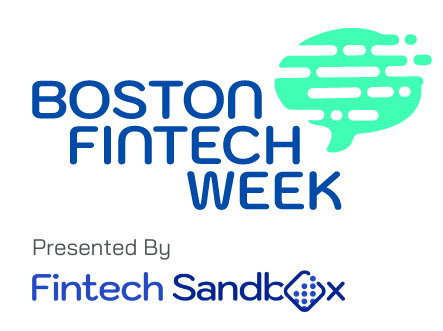The Fintech 5 is a series of blog posts consisting of questions and answers designed to help you get to know the people in the Fintech Sandbox community.
Dev Worah is Senior Client Partner & Head, Capital Markets, Asset & Wealth Management at Slalom, a global consulting company. Dev has over 25 years of experience leading strategy and innovation initiatives. He works with both multinational firms and technology startups and is skilled at guiding financial services firms through business transformations.
Slalom is a sponsor of Fintech Sandbox and Boston Fintech Week.
#1. Dev, what can I do at a Slalom Element Lab?
At Slalom Element Lab, we offer a unique environment where our customers and technology partners can quite literally experience the future. It’s a hands-on space designed to push the boundaries of what’s possible with emerging technologies. We curate interactive experiences tailored to specific industry challenges, enabling our customers to explore and experiment with cutting-edge solutions in a tangible way. The Element Lab empowers customers to not just talk about innovation but to actively shape it. It’s where they can test-drive the latest technology in a high-powered environment, unleash their creativity, and build innovative energy into the DNA of their businesses.
For instance, the Slalom Element Lab can help a brokerage company reimagine, firsthand, how it interacts and services its clients, using technologies like agentic AI, extended reality (XR) and digital twins in context of its retail branches, contact centers, and digital service experiences. With just one half-day curated experience inside our lab, businesses can gain a deeper understanding into these emerging technologies, reset perceptions around what’s possible, and leave energized with a clear action plan on how best to start introducing new capabilities into their organizations.
#2. Which fintech problem or solution are you personally most interested in right now?
In wealth management, I’m passionate about scaling and democratizing access to sophisticated financial and estate planning. Traditionally, high-touch, concierge-level financial advice has been reserved for high-net-worth individuals, leaving most people to navigate complex financial decisions on their own. However, this creates a significant advice gap, hindering many people from reaching their financial goals.
The convergence of human-centered AI, open banking, and evolving regulatory frameworks offers a timely opportunity to bridge this gap and empower individuals to achieve their financial aspirations.
Imagine an AI-powered wealth management advisor—similar to a personal CFO—that understands your goals, preferences, and financial history. By analyzing data and interacting with you and your family, it provides personalized advice, proactive financial health monitoring, and goal-driven planning, all while collaborating closely with your trusted team of financial experts (e.g., attorneys, tax consultants). This digital advisor could leverage vertical LLMs trained on financial data and AI-driven platforms, becoming an always-available resource dedicated to your family’s financial well-being.
Both WealthTechs and incumbents are working toward this vision, and I’m excited to see how the space evolves over the next couple of years.
#3. Where are we in terms of AI adoption in financial services?
The financial services industry is undergoing a significant transformation driven by AI, though we are still in the early stages of adoption. As we enter 2025, forward-thinking firms are integrating AI solutions into their operations after seeing successful results from AI pilots. Our financial services customers are increasingly leveraging AI to boost efficiency, compliance, and customer experiences. Key applications include automating customer interactions with chatbots and virtual assistants, providing personalized financial advice, and streamlining processes like claims processing, mortgage approvals, and document analysis. AI also plays a crucial role in fraud detection, risk assessment, and regulatory compliance, ensuring security and adherence to evolving standards. In capital markets, AI is enhancing financial analysis, market insights, and algorithmic trading.
While there are challenges, such as data privacy, fairness in decision-making, and the integration of AI into legacy systems, organizations are overcoming these hurdles with a value-based prioritization approach. As these challenges are addressed, we can expect to see significant progress in AI adoption throughout the industry in 2025, unlocking even greater potential for innovation and growth.
#4. How has participation in Boston Fintech Week been beneficial to Slalom?
Slalom’s involvement over the last three years with Boston Fintech Week has delivered significant advantages, unearthing crucial insights into the latest industry trends, emerging technologies, and disruptive innovations impacting financial services. This frontline exposure not only enhances our understanding of where the industry is headed but also enables us to provide our clients with strategic guidance and innovative solutions that align with the rapidly evolving fintech landscape.
In fact, we have leveraged the Boston Fintech Week platform to invite our customers and key partners into more conversations, providing them with unique opportunities to explore potential solutions, connect with innovative startups, and gain a deeper understanding into the evolving fintech landscape. This has allowed us to continue to “bring more” for our customers, while also building a more vibrant fintech community in New England.
#5. What advice do you have for startups about partnering successfully with incumbent firms?
Startups often underestimate the complexity and priorities of enterprise-scale financial services firms. My advice is to focus on understanding the incumbent’s specific pain points and clearly demonstrate how your solution delivers measurable value. Find opportunities and quick wins to exemplify the value of your solution as early as possible. Adapt to their systems and regulatory environment, while approaching the partnership with flexibility and scalability in mind. Relationship-building is equally critical; take time to engage key stakeholders and align your goals with theirs. Finally, be prepared for a longer sales cycle—quick wins through pilots or proof of concepts can accelerate trust and open doors for deeper collaboration.
Bonus Question! What’s the most interesting thing you’ve read recently?
I’m not someone who usually reads books cover to cover, but here are two I’ve been diving into recently that have really stuck with me:
- The Power of Regret by Daniel Pink has been a game-changer for me. It’s given me a fresh way to think about regret and how to respond to it. I’m excited to put Pink’s ideas into practice—learning from regrets and using them as a springboard for personal and professional growth.
- Mindset by Carol Dweck is another fantastic read. Dweck does such a great job of explaining the power of a growth mindset and shares practical tips for embracing challenges, pushing through tough times, and turning failures into opportunities to learn. Her ideas are so helpful for work, relationships, leadership, and life in general.
# # #











